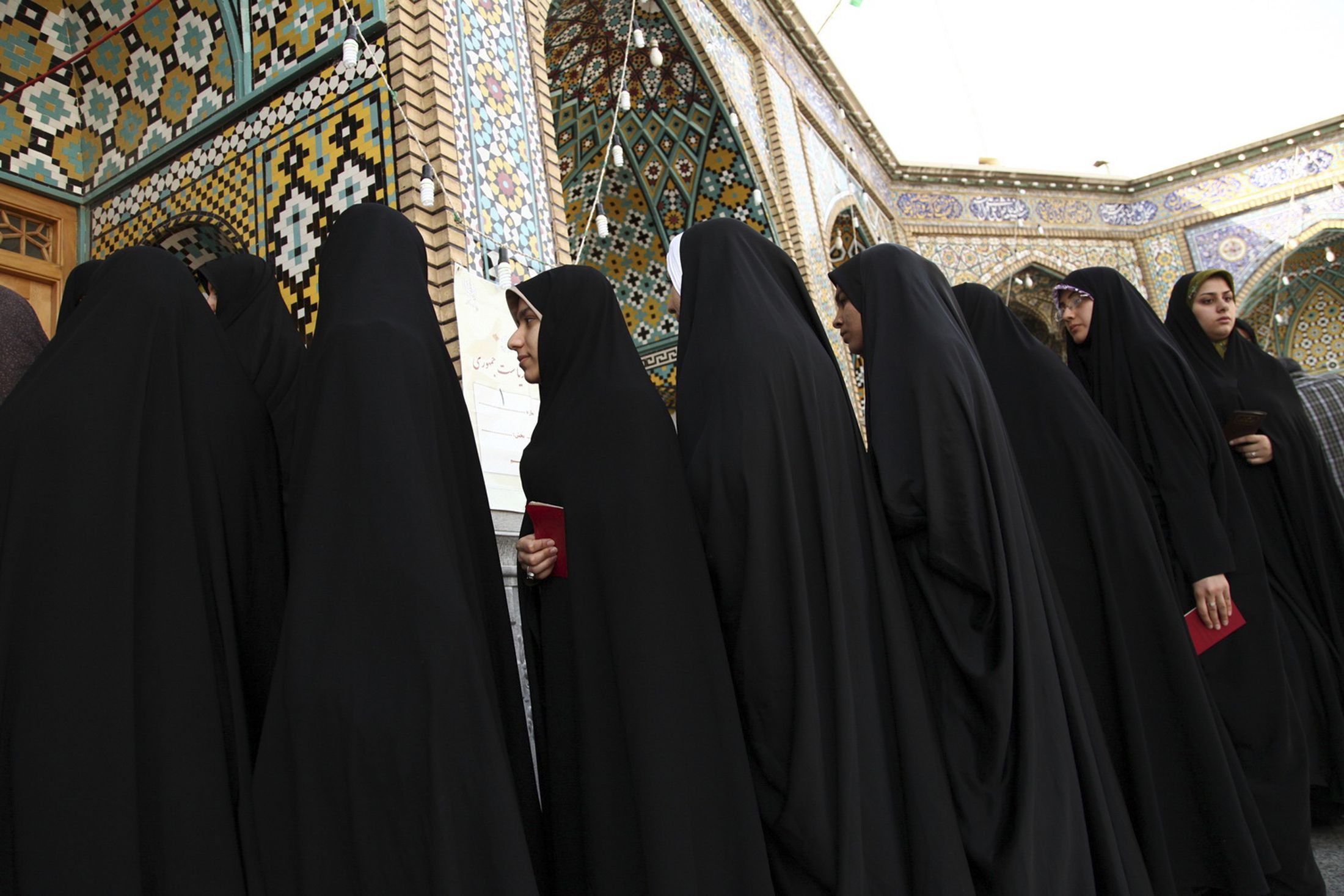
Two bills being discussed in Iran will turn women into "baby-making machines" if passed, Amnesty International warned on Wednesday.
The bills seek to boost Iran's population of 77 million. Population growth in the country has been declining since the late 1980s, despite the efforts of former president Mahmoud Ahmadinejad to end family-planning programs. The new bills, which would limit women's access to contraception and encourage companies to prioritize hiring men with children over other groups, would, Amnesty argues, effectively legalize gender discrimination in the workplace and result in more women seeking out dangerous, unsafe and illegal abortions.
"The bills reinforce discriminatory stereotypes of women and mark an unprecedented move by the state to interfere in people's personal lives," Hassiba Hadj Sahraoui, Amnesty's deputy director for the Middle East and North Africa, said in a statement Wednesday. "In their zealous quest to project an image of military might and political strength by attempting to increase birth rates, Iran's authorities are trampling all over the fundamental rights of women—even the marital bed is not out of bounds."
Iran already has a poor record on gender rights—between 2013 and 2014, 41,226 girls aged 10 to 14 and 201 girls under 10 were married—and despite being the majority of university graduates, women make up just 17 percent of the Iranian workforce, according to Amnesty.
Twenty-one women out of every 100,000 in Iran die from complications related to pregnancy and childbirth, according to the United Nations Development Programme's 2014 Gender Inequality Index, a figure that could rise with limited access to safe abortion. Unsafe abortion kills around 47,000 women a year and is one of the leading causes of maternal mortality across the globe. The U.S., ranked fifth, has the same maternal mortality rate as Iran, while in Norway, the top-ranked country in terms of gender equality, the rate drops to seven out of 100,000.
One of the Iranian measures, the Bill to Increase Fertility Rates and Prevent Population Decline, was approved with a majority in the parliament last August. It needs to be approved by the Guardian Council before it becomes law. In addition to blocking information about and access to contraception, including condoms, which Amnesty says will increase the rate of sexually transmitted diseases in Iran, the bill would end all state funding of the country's current family-planning program.
The other bill, the Comprehensive Population and Exaltation of Family Bill, is scheduled to go through parliamentary discussions next month. It "instructs all public and private entities to prioritize, in sequence, men with children, married men without children and married women with children when hiring for certain jobs," says Amnesty, and will have unknown consequences for women who don't want or cannot have children.
The bill also discourages police and judges from intervening in family disputes, which would, according to Amnesty, increase women's risk for sexual and domestic violence and make it harder for them to get a divorce from their husbands.
"The Iranian authorities must recognize that introducing such legislation could have devastating consequences for women trapped in abusive relationships," said Sahraoui.
The Amnesty report on the two bills comes during the first week of the 59th Commission on the Status of Women conference at the United Nations. A number of reports on the progress made on women's rights and gender equality over the past two decades, including ones from the Clinton Foundation and U.N. Women, show that while gains have been made in women's access to health care and legal protections, progress on domestic violence has been painfully slow and uneven.
Uncommon Knowledge
Newsweek is committed to challenging conventional wisdom and finding connections in the search for common ground.
Newsweek is committed to challenging conventional wisdom and finding connections in the search for common ground.
About the writer
Before joining Newsweek, Lucy Westcott was an editorial fellow at The Wire. Previously a United Nations correspondent for the Inter ... Read more
To read how Newsweek uses AI as a newsroom tool, Click here.








